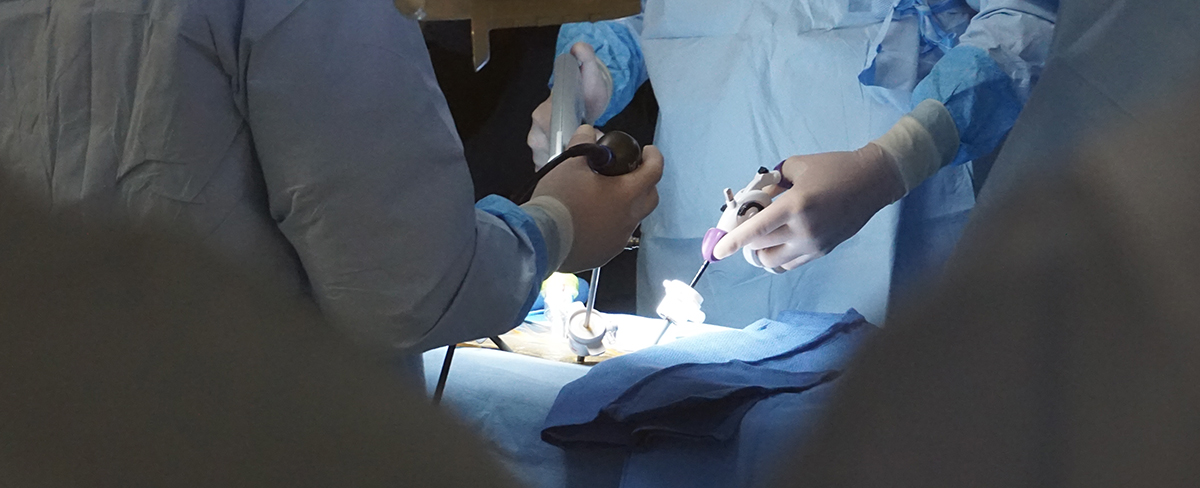Hands on learning the power of design and a human-centered approach
IDSA’s commitment to the medical design profession has been growing over the past few years. This is exemplified by the annual Medical Design Conference, the most recent of which was on March 28 & 29, 2018 in Boston, MA. During two days of focused content themed ‘EXPERIENCE’, over 100 medical design professionals participated in hands-on workshops and heard from some of the top thinkers in the field.
EXPERIENCE explored the potency of researching and designing healthcare products and environments that weld human performance, business and the dignity of users. We covered everything from future trends that impact medical design—to best practices and tools and techniques for the research and design of effective medical product and environments.
Now more than ever it is imperative to establish open, dynamic communication and access between designers and the medical community to truly design for the most pressing healthcare-related problems. Given the complexity and constraints around the typical healthcare environment, it is nearly impossible for designers to create optimal solutions without adequate exposure to patients, healthcare environments, and clinicians. The IDSA’s Medical Conferences are a first step to making those necessarily robust connections and starting a meaningful dialogue between designers and clinicians.
"For me, the IDSA Medical conference was a great way to connect with industry and potential project collaborators, but more importantly it was an opportunity to interact with design faculty working to build curriculum and research related to healthcare."
Raja Shaar, Assistant Professor of Product Design at Drexel University

Pre-conference Workshops
The Boston Children’s Hospital opened the doors of their highly advanced simulation facility. It’s here where Sean Hägen, IDSA, HFES, lead a comprehensive, overview course on how to plan, execute and analyze Contextual Inquiry (CI) methodology in the clinical environment. A highlight of the session was an ‘in-situ’ demonstration inside a simulated operating room (OR) where a gastro-bypass surgery was being performed. Participants learned how to observe and monitor the situation properly while documenting their findings. The result was a new-found skill of how to incorporate Contextual Inquiry in the design process while unearthing insight which could lead to breakthrough design innovations. These solutions can have a profound impact and can save lives in the OR.
Trent Kahute, IDSA, of THRIVE lead a workshop to give healthcare and design professionals responsible for the delivery of the overall patient experience—the practical tools and methods needed to identify unmet needs, frame opportunities for new value creation and ultimately deliver compelling experiences for patients and other caregivers.
A simulated birth gave participants the opportunity to observe the stages of Active Labor, Transition Labor, Pushing, Birth, Delivery of the Placenta and Early Recovery. The interactive workshop introduced THRIVE’s system of experience mapping for healthcare services and medical procedures. Participants witnessed the tools and analytical techniques of contextual inquiry, experience mapping, and opportunity identification.
"It was a tremendous opportunity for unrivaled networking against a backdrop of some of the most forward thinking healthcare design leaders today."
Bryce Rutter, PhD, IDSA, Metaphase Design Group

Conference Sessions
A packed house of medical design professionals, educators, product manufacturers and students gathered for a full day of presentations curated by conference chair Bryce Rutter, PhD, IDSA. EXPERIENCE covered a vast spectrum of emergent trends including: the impact of IoT, robotics and nanotechnology on ID—and share-outs by leading experts on best practices in healthcare design today, including how design can help tackle the opioid crisis in the United States.
Highlights of the event included:
- Purposeful alignment with the HFES International Symposium on Human Factors and Ergonomics in Health Care(link is external)
- An on-stage demonstration of an augmented reality prototype testing scenario by designers from Radius.
- Multiple examples of how human-centered and empathetic design processes can dramatically improve healthcare delivery.
- Panel discussion moderated by Mitzi Vernon, IDSA covering the future needs of healthcare design education.
"The relaxed, optimistic nature of the conference is refreshing in and of itself, but is most valuable because it allows a free exchange of playful ideas and cross-pollination between various experts across design, medicine and engineering that can lead to unconventional ideas and disruptive innovation."
Lynde Lutzow, Tufts University

Speakers

